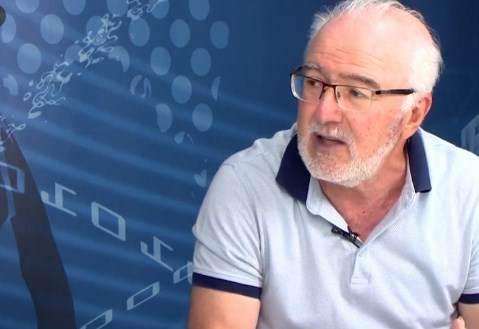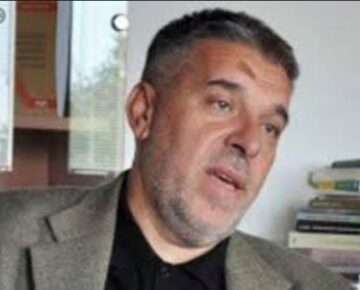Historian Todor Cepreganov issued a strongly worded rebuke of his colleague Dragi Gjorgiev, who heads the Macedonians team in the joint historic commission with Bulgaria. In a Radio Free Europe interview, Gjorgiev said that Bulgaria was not a “classical case of a fascist country” during the Second World War. The qualification follows strong pressure from Bulgaria that Macedonia rewritest its historic narrative, as a price of admission in the European Union.
No professor, not only was Bulgaria a fascist country, it was a Nazi-fascist country. You say that there were fascist movements in the country, with fascist ideas, but these were not reflected in the ruling structures of Bulgaria? You make it look like Bulgaria was a rudderless country where anyone could do as he pleased. Why are you trying so hard to find excuses for the Bulgarians and pardon their Nazi-fascist past? If only you worked so hard to protect the legacy of Goce Delcev, and resisted attempts by politicians to use you as their extension, professor Cepreganov writes in his response to Gjorgiev.
Cepreganov points to the “law for protection of the nation” that was adopted by the Bulgarian Parliament and signed by Tsar Boris III, the decision by Bulgaria to deport Jews from Macedonia and other occupied territories to the German death camps and the post war trials in which over 2,700 officers and royal advisers were sentenced to death for working with the fascist regime.
If there was no fascism in Bulgaria, then you also denounce the anti-fascist character of the Macedonian liberation struggle. If there was no fascism, there can be no anti-fascism. Who did the Macedonian partisans fight against? Themselves? Who killed Metodija Satorov – Sarlo? Were the murders of Straso Pindzur, Mirce Acev, Vera Jocic, the children of Vatasha, the slaughter of Dabnica, not the work of fascists?, Cepreganov adds.





Comments are closed for this post.